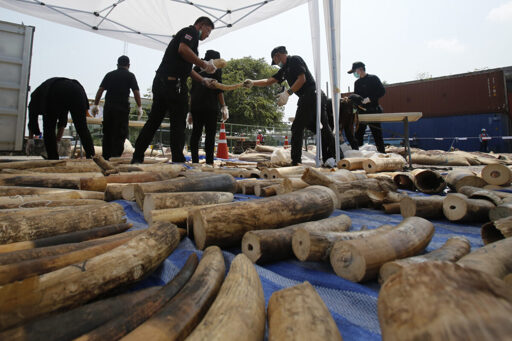LUANG PRABANG, Laos — “No coffee, no coffee,” repeated the security guard. His smile stood in stark contrast to his faded camouflage fatigues and the machine gun slung over his shoulder. Few cafés in the sleepy Laotian tourist town of Luang Prabang boast armed guards, but Kin Liao Coffee is not the average café. While it’s unclear if Kin Liao Coffee actually serves coffee, the café situated on the side of the road near the Kuang Si waterfall has been found to illegally sell a wide array of ivory, rhino horn and bear bile products, as well as Angong Niuhuang Wan — a traditional Chinese medicine that is often manufactured in North Korea using powdered rhino horn. Kin Liao Coffee is just one of more than 20 locations across Luang Prabang and the Laotian capital of Vientiane identified in a joint investigation between Mongabay and the Global Initiative Against Transnational Organized Crime (GI-TOC) as selling illegal wildlife products at scale. These shops appear to exclusively cater to Chinese tourists, specifically those visiting Laos on pre-arranged low-budget package tours. The tours target elderly Chinese nationals, promising them all-inclusive trips to explore the historic ties between the two countries, often via the China-Laos railway. Upon arrival, tour groups are ferried from one shop to another, where sellers — mostly Chinese nationals themselves — use coercive and manipulative sales tactics to pressure tourists into buying illegal wildlife products, most of which are sold at inflated prices, the investigation found. Large ivory carvings, some…This article was originally published on Mongabay
From Conservation news via this RSS feed


